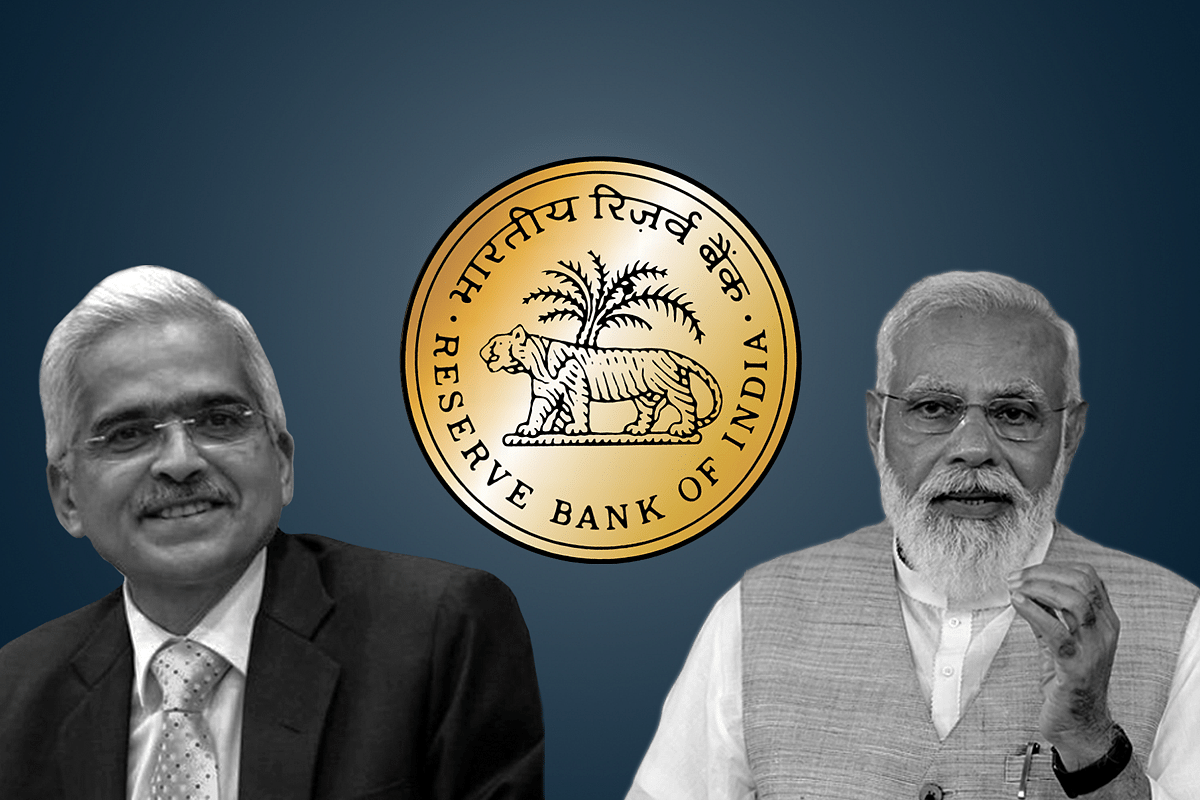Ideas
The Case For Limited Tax Incentives For Retail Investment In GOI Bonds
- When equity investment is subject to lower rates of tax on gains, and mutual fund debt investors too get tax sops, there is no logic in denying the same to a new category of retail investors whose participation in the government debt market everyone wants to encourage.

Prime Minister Narendra Modi and RBI Governor Shaktikanta Das.
The Reserve Bank of India (RBI), which recently launched a scheme for direct retail investment in government bonds, is said to be keen on some kind of tax incentives to facilitate wider participation by the general public. While one can make a theoretical case for not mollycoddling retail investors, the case for some sops right now is strong.
There are two reasons why.
One, while citizens are insulated from default risks when investing in government bonds, they are not insured against interest rate risks. This means a bond bought with a yield of, say, 6.5 per cent today can tomorrow be worth less than what people paid for it if interest rates move up and market prices adjust for it. Any tax sops anyway will not cover capital gains, which are taxed at 10 per cent without indexation and 20 per cent with indexation if held for the long term.
Two, it would be good in general for the government to have a wider base of bond investors, which will help it depend less on public sector banks to bankroll its borrowing programmes. It follows that any intervention to incentivise retail lending to government is good. The time to withdraw the sops may be when retail participation is wide enough and the policy objectives are met.
The question is what kind of sops make sense?
Again, two moderate incentives already exist for other forms of debt investments and interest earnings. One is the 80C benefits which allow for tax deductions on provident fund and national pension scheme contributions, life insurance premia, etc. The other is the 80 TTA and 80 TTB benefits available on bank deposits, with interest earnings being free upto Rs 10,000 per annum for everybody, and upto Rs 50,000 per annum for senior citizens. If bank deposits, where there is no question of losses on capital invested upto Rs 5 lakh (that much is insured), can earn interest-free income upto a point, what is the point in denying the same for government bond investors? Moreover, investment in mutual fund debt schemes are also taxed lower on long-term gains.
Some pink paper editorials, including this one, have argued against tax incentives and called for placing all debt instruments on the same tax footing. However, this would be short-sighted. When there is a clear policy need to broaden the base of lenders to the sovereign, there is no logic in denying limited incentives to investors. The time to treat all debt instruments equally may be when the retail markets for debt mature.
As of now, when equity investment is subject to lower rates of tax on gains, and mutual fund debt investors too get tax sops, there is no logic in denying the same to a new category of retail investors whose participation in the government debt market everyone wants to encourage.
Theory should not trump practical logic.
Introducing ElectionsHQ + 50 Ground Reports Project
The 2024 elections might seem easy to guess, but there are some important questions that shouldn't be missed.
Do freebies still sway voters? Do people prioritise infrastructure when voting? How will Punjab vote?
The answers to these questions provide great insights into where we, as a country, are headed in the years to come.
Swarajya is starting a project with an aim to do 50 solid ground stories and a smart commentary service on WhatsApp, a one-of-a-kind. We'd love your support during this election season.
Click below to contribute.
Latest